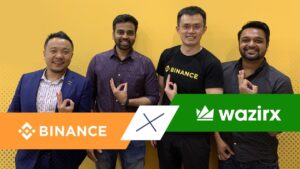
In a fragmented world defined by tribalism, geo-political tensions and distrust, the metaverse — an open virtual world where users interact as avatars — can play an important role in bringing diverse groups together across disciplines, borders and boundaries. Meeting leaders at this year’s World Economic Forum in Davos, as well as our work building one of the biggest gaming metaverses and our commitment to the Open Metaverse Alliance — a consortium of Web3 firms dedicated to solving the industry’s interoperability issues — have only strengthened my confidence in the metaverse as an agent for positive change.
However, positive change can only be achieved if the metaverse principles of storytelling, diversity, decentralization, openness, sustainability, and offering opportunities for all are observed in our new digital culture.
Building a representative virtual community
The concept of a sci-fi metaverse where humans can experience diverse activities in digital universes is steadily coming to fruition. However, just because a platform calls itself a metaverse does not make it a transformative tool for positive change. Merely replicating current economic and social conditions in a more immersive form of Web 2.0 is not enough. But how do we get to a better metaverse that can attract users and create new economic opportunities worldwide?
To accomplish that goal, the following six principles must be foundational in a new, more inclusive and more just digital society. Let’s briefly look at each in turn — what these foundational principles are, why they’re important, and what they can enable us to achieve in the metaverse.
- Storytelling
Humans are storytellers, and narrative is a key driver of cultural understanding. Using the language of games, we can create compelling hooks, rich visuals and captivating storylines that capture the imagination in the metaverse. For instance, through gameplay, we can simulate in the metaverse climate and weather issues as a way to raise awareness and develop a sense of urgency. Games allow topics to be presented in a way that draws people in rather than feeling like a lecture. Narratives in this context can drive true change while feeling like entertainment.
- Diversity
Virtual worlds must reflect the diversity of their citizens. Without diversity, there can be no cure for a fragmented world. Thus, we must create metaverses that reflect the heterogeneity of the world and promote positivity in celebration of humankind’s richness. We must also protect users on our platforms while providing digital identity solutions that promote trust while allowing the full spectrum of self-expression.
- Decentralization
Censorship creates distrust and a lack of ownership creates apathy and misaligned incentives. Centralized governance often represents only those with the most power. By contrast, decentralization empowers new voices. The implementation of token-based governance creates the possibility of a democratic system where every citizen can shape the future of the metaverse. This is an important aspect for policyholders, who must regulate borderless metaverses within their own geographies. Through tokens, every digital citizen can have a voice in shaping the virtual worlds and digital platforms they use every day.
- Openness
The importance of an open metaverse that’s not controlled by a single entity cannot be denied. Openness is non-negotiable; we can’t replicate the problems of the current walled garden tech ecosystem in new digital worlds. When just a few companies control nearly every digital channel, from social media to search, the average person loses out. An open metaverse is one that lets competition thrive and prioritizes interoperability over gatekeeping. This requires shared standards to support interoperability, to foster innovation and share rewards among all stakeholders.
- Sustainability
Just as in the physical world, the centrality of sustainability as a key metric remains paramount. Using digital platforms as a place to spend time doesn’t mean we can avoid our responsibility to the environment. We must preserve our real world while engaging metaverse users with immersive experiences that encourage real-world action, as well as commit to carbon neutrality. Using tools such as proof of stake to limit the computing footprint of metaverse transactions can make the metaverse a greener, better place.
- Opportunities for all
The rise of the creator class means we can build an inclusive world that represents the diversity of its citizens — and provides job opportunities that reach across geographies. Metaverses will be built by individual creators working on common platforms, and job growth knows no borders. Virtual worlds are borderless, which creates wealth-generating opportunities for people everywhere. By supporting the growth of the industry, and promoting the work of independent creators and game developers, we can begin to level the playing field in ways that location-based industries cannot.
The future of the metaverse
Each of the six principles outlined above is something we are working hard to achieve through education and supporting the burgeoning creative class. But we have much more work to do, as putting these principles into action for tens of millions of people on an online platform is a Herculean challenge.
If you are already working to build a virtual world, I urge you to use these principles as fundamental goals to achieve in your project. If you are considering joining or partnering with a platform, consider them as requirements — and if you don’t see them, advocate for these principles. We will all be better for them.
Collaboration, co-creation, openness and transparency are all key traits we must hold as essential for the future of the metaverse. Only by sharing our best practices can we all achieve all our goals in this new universe — and use our nascent digital societies as a vehicle for making society as a whole more diverse, representative and fair place for all.
- SEO Powered Content & PR Distribution. Get Amplified Today.
- Platoblockchain. Web3 Metaverse Intelligence. Knowledge Amplified. Access Here.
- Source: https://forkast.news/how-metaverse-can-make-real-world-better/
- a
- About
- above
- accomplish
- Achieve
- achieved
- across
- Action
- activities
- advocate
- Agent
- All
- Allowing
- already
- among
- and
- aspect
- Avatars
- average
- avoid
- awareness
- because
- BEST
- best practices
- Better
- Biggest
- borderless
- boundaries
- briefly
- Bringing
- build
- Building
- built
- Calls
- cannot
- captivating
- capture
- carbon
- Celebration
- Centrality
- centralized
- challenge
- change
- Channel
- citizen
- Citizens
- class
- Climate
- co-creation
- coming
- commit
- commitment
- Common
- Companies
- compelling
- competition
- computing
- concept
- conditions
- confidence
- Consider
- considering
- consortium
- context
- contrast
- control
- controlled
- create
- creates
- Creative
- creator
- creators
- cultural
- Culture
- cure
- Current
- davos
- day
- Decentralization
- dedicated
- defined
- democratic
- develop
- developers
- digital
- digital identity
- digital platforms
- digital worlds
- distrust
- diverse
- Diversity
- Doesn’t
- Dont
- drive
- driver
- each
- Economic
- ecosystem
- Education
- empowers
- enable
- encourage
- engaging
- enough
- Entertainment
- entity
- Environment
- essential
- Every
- every day
- experience
- Experiences
- fair
- few
- field
- firms
- following
- Footprint
- form
- Forum
- Foster
- fragmented
- from
- fruition
- full
- full spectrum
- fundamental
- future
- game
- gameplay
- Games
- gaming
- Garden
- gatekeeping
- geographies
- get
- goal
- Goals
- governance
- Group’s
- Growth
- Hard
- hold
- Hooks
- How
- However
- HTTPS
- Humans
- Identity
- IDENTITY SOLUTIONS
- imagination
- immersive
- implementation
- importance
- important
- important aspect
- in
- Incentives
- Inclusive
- independent
- individual
- industries
- industry
- industry’s
- Innovation
- instance
- interact
- Interoperability
- issues
- IT
- itself
- Job
- Job Opportunities
- joining
- Key
- Know
- Lack
- language
- leaders
- Lecture
- Lets
- Level
- LIMIT
- Location-Based
- Look
- Loses
- make
- Making
- means
- Media
- meeting
- merely
- Metaverse
- metaverses
- metric
- millions
- more
- most
- NARRATIVE
- narratives
- nascent
- nearly
- Need
- New
- offering
- ONE
- online
- open
- Openness
- opportunities
- outlined
- own
- ownership
- Paramount
- partnering
- People
- person
- physical
- Place
- platform
- Platforms
- plato
- Plato Data Intelligence
- PlatoData
- Play
- playing
- policymakers
- positive
- Positivity
- possibility
- power
- practices
- presented
- principles
- problems
- project
- promote
- promoting
- protect
- provides
- providing
- Putting
- raise
- reach
- real
- real world
- reflect
- Regulate
- remains
- representative
- represents
- Requirements
- requires
- responsibility
- Rewards
- Rich
- Rise
- Role
- sci-fi
- Search
- sense
- Sense of Urgency
- Shape
- shaping
- Share
- shared
- sharing
- single
- SIX
- Social
- social media
- Society
- Solutions
- Solving
- something
- Spectrum
- spend
- stakeholders
- standards
- storytelling
- such
- support
- Supporting
- Sustainability
- system
- tech
- The
- The Future
- The Metaverse
- the world
- their
- Thrive
- Through
- time
- to
- together
- Tokens
- tool
- tools
- Topics
- Transactions
- transformative
- Transparency
- true
- Trust
- TURN
- understanding
- Universe
- urgency
- us
- use
- users
- vehicle
- Virtual
- virtual world
- virtual worlds
- Voice
- VOICES
- Walled
- ways
- Weather
- web
- Web 2
- Web 2.0
- Web3
- What
- which
- while
- WHO
- will
- within
- without
- Work
- working
- world
- World Economic Forum
- world’s
- worldwide
- Your
- zephyrnet












